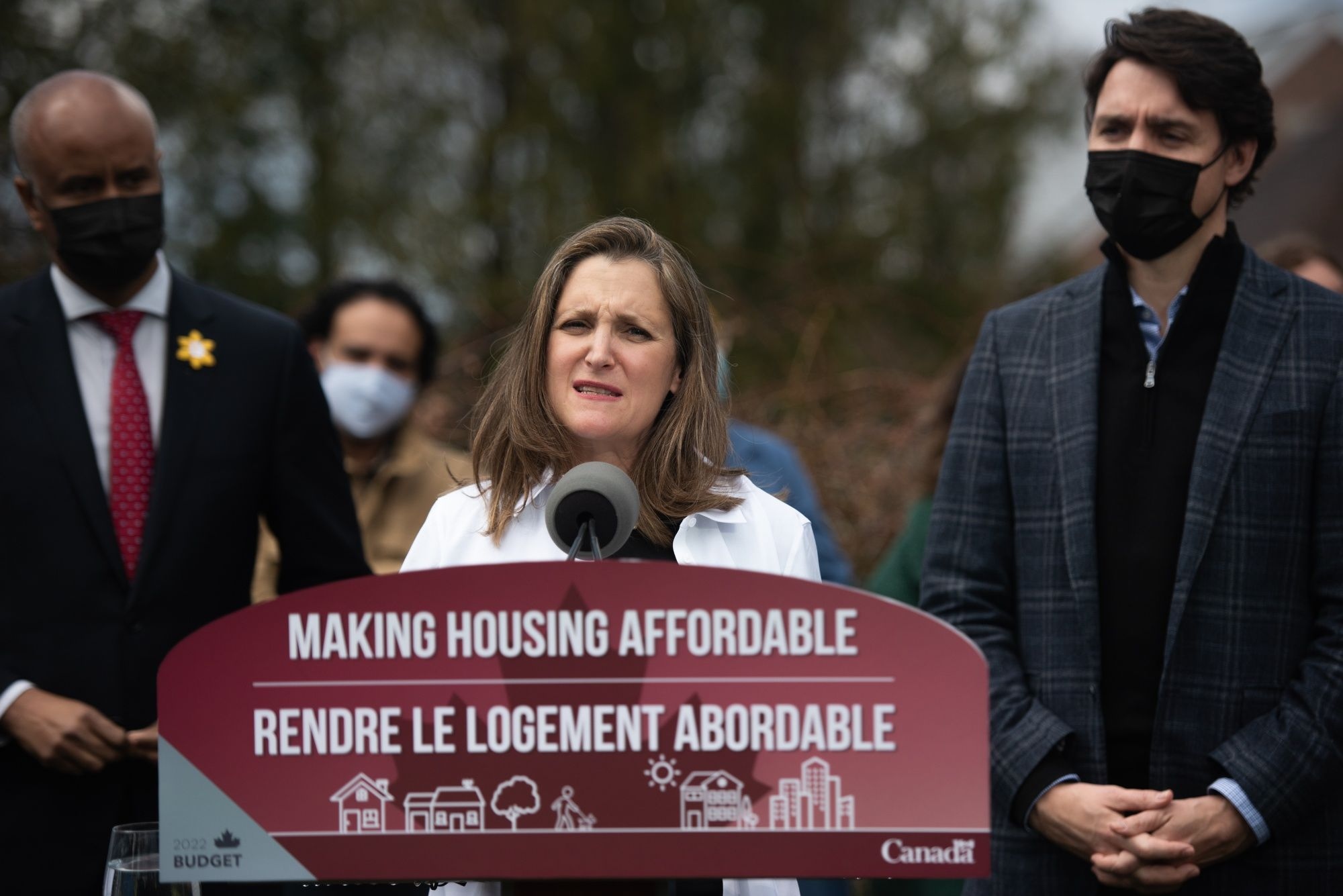Jun 15, 2022
Freeland to lay out plan to cope with inflation in keynote speech
, Bloomberg News
LIVE1 Digital Channel
Justin Trudeau’s finance minister will use a keynote speech to make the case that Canada’s government is ready to tackle affordability issues as consumer prices soar and borrowing costs rise sharply.
Chrystia Freeland, in midday remarks Thursday to the Empire Club in Toronto, will examine the state of Canada’s economy as the COVID-19 pandemic subsides, according to a person familiar with the speech. She’ll focus on the global challenge of inflation and steps the government is taking to counter the rising cost of living.
However, it will not lay out any new spending, instead pointing to programs that are already within the fiscal framework, the person said.

Freeland unveiled a budget in April with less spending than expected, using a revenue windfall to reduce the deficit. She will emphasize that the government must show fiscal restraint after enormous emergency spending during the pandemic, the source said.
Among the programs expected to be highlighted are an increase to Canada’s workers benefit for low-income earners, an increase to Old Age Security payments, and the government’s marquee $30 billion (US$23.3 billion) child-care program that will slash fees for the average family over the next five years.
The government is forecasting a deficit of $52.8 billion this fiscal year, or 2 per cent of gross domestic product, down from a gap of about 15 per cent at the peak of pandemic spending in 2020-2021.
Freeland’s speech comes at a fraught moment for the economy. Inflation data due next week are on track to show an annual rate in excess of 7 per cent, which would all but cement expectations that the Bank of Canada will follow the Federal Reserve with a super-sized rate hike of 75 basis points at its next meeting in early July.
That would bring Canada’s policy interest rate, which was holding at an emergency pandemic low of 0.25 per cent until March, to 2.25 per cent -- the highest it has been since late 2008. How that steep rise in borrowing costs impacts heavily indebted households is a key concern for politicians and policy makers.
Her remarks also come two weeks after her predecessor, Bill Morneau, told a Toronto dinner audience the Liberal government isn’t sufficiently focused on long-term growth challenges like productivity. The former finance minister resigned in August 2020 after a rift with the Trudeau over the pandemic recovery plan erupted into public view.








